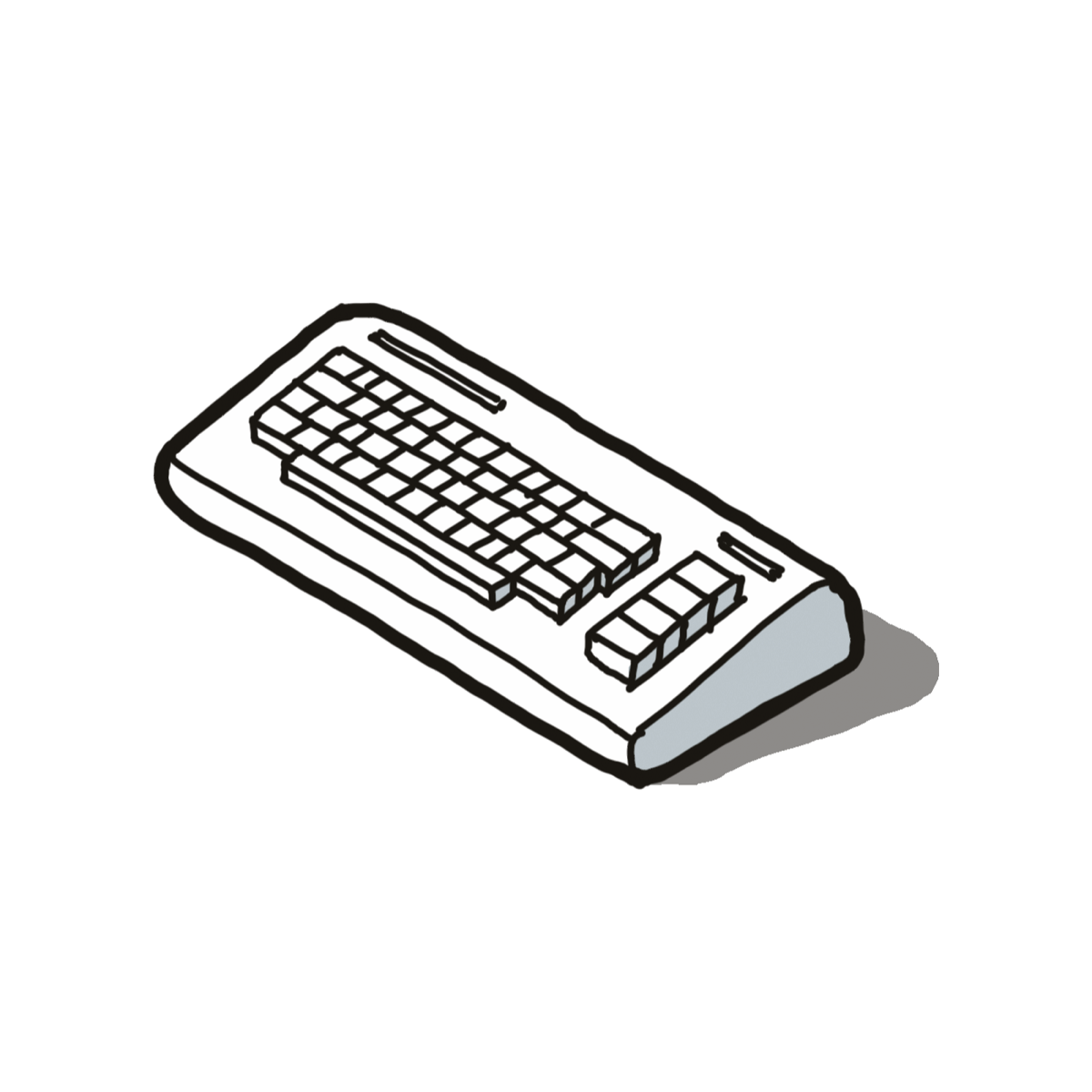What is a home computer in 2019?
by Konstantin Weiss on May 28, 2019
In the 80s, the term "home computer" has been given to machines like the Commodore 64. At that time, it was a device that you could plug into a TV, write simple programs in an awkward way, and could play video games with. It was a computer in the way that it had a processor, RAM, and was programmed, and it was "home" since it was of little business value and was bought primarily for living rooms and not for offices.
What is, what can be a home computer today? Certainly not a C64 kind of thing. By 'home computer' I don't mean a 'PC' for home use, like a Mac or an Wintel PC. If wikipedia defines home computers as "affordable and accessible computers, that, for the first time, were intended for the use of a single nontechnical user", what could such a device be 40 years later?
For me, the term is a conjunction of two words. There is the "computing" part of it, which hints at anything that can process and manipulate data, and nowadays probably gets big chunks of its capability from the cloud. And there is the "home" aspect of it, wich situates the device within my home. For me that's primarily the living room and/or kitchen. And these rooms suggest that this device should rather serve a household or family, instead of an individual user only.
I don't expect from today's home computer that I can actually program on/with that thing. May be I can program it with the help of a PC, like you would program an Alexa skill on a PC, not on Alexa. As "users", I see ourselves in the role of utilizers.
If #information is anything that helps us to reduce uncertainty about future outcomes, this information machine shall help our household to act/navigate our daily lives.
Use cases
Here are some use cases that I see crucial and handy for a home computer to help with.
- Orient oneself within the time/locations of a day. What's in my calendar? Where do I need to be today? How to get there? When's the time to leave home? When will I be back? Where's my wife/kids gonna be? When does the tram leave? Is there still a bus I can take? How to get fastest to X, via tram or bike?
- Outside conditions. What's the weather today? Can I go by bike, and still return dry at 6pm? What's the temperature going to be - do my kids need a jacket, or is a pullover enough?
- Looking up words and meaning. What does xyz mean? What does Wikipedia say about it? What's the German word for this English word? When was that poet born, and which were her famous publications? How old is is that culture? Was the first space ship launched before or after the launch of the first personal computer? Is email older than the PC?
- Cooking/groceries. How to cook this dish? What ingredients do I need for it? Let's add the ingredients to the shopping list. Is the supermarket still open? How to peal that fruit properly? And is there another way to bake that cake?
- News. How were the election results? Is Britain going to stay after all? What happened to the Austrian government?
- Friends and family. Does any one of my dearest people have birthday today, or tomorrow? When was the last time we talked to our friends in Berlin? Is there a free weekend we can go to Zurich, in the next two months?
- Music. Please play our coffee playlist. What's that song on the radio? Show me the lyrics of this song. Please play something similar. Play it on the loudspeakers in the living room, and the kitchen. Louder, please.
- Short messages about logistics. Text my wife that I'll be 10 minutes late. Text neighbors and ask them if I can borrow any eggs. Ask my friend if I can call him at 5:30pm today.
User Interface
I expect to interact mainly over voice. Preferably in the main spoken languages at home, in my case German and Portuguese. Maybe English too, for texting to English-speaking friends. I need to hear the answers. I probably frequently need to see them too, be it the route on a map, the how-to video, my day in the calendar. I will do some selection or navigation with my fingers instead of my voice. Tapping on a music album, an event entry, typing the name of something that I don't know how to pronounce.
Presence
I expect it to be ambient, and not moving. It should belong to the room, be part of the furniture, be unobtrusive and discrete. I want it to be easily accessible for my fingertips, especially in the kitchen, and being able to view what it shows rather from a standing position, then while sitting. I probably want the screen to be off most of the time, not lightning the room, not inviting to look/watch/interact. Mostly, I want the device to respond to my actions, not to be active itself. There may be some exceptions, like an incoming text from my wife, so that I know that she'll be late.
Doubtful and unwanted features
First of all, I don't care about controlling home appliences. So far, we have no 'smartness' in our light bulbs or thermostats. And I don't see it coming in near future.
Editing photos, doing typographic design work, extensive writing, sketching, extensive research, reading long texts and the like - for all of that I have other devices. I'm not interested at all in doing this on a home computer.
I'm not sure about video chat. On the one hand that might be handy, on the other hand I don't want this thing to have a camera and thus be able to see/film all the time. That's creepy. It may be easy to connect to my kids with my parents. But then, kids usually run around and want to show things, so it's better to have a portable device in their hands (yes, I know it's dangerous).
Also, I have no idea how to do it, but if the device listens to everything all the time, that's creepy too. There are companies I trust more than others, but overall this trust is superficial and I'd like to avoid it as far as I can.
I don't want this device to have shopping features. Back off, capitalism. I want shopping to be an activity performed deliberately, consciously. So, I rather want us to do shopping on a device that's less accessible all the time.
Texting is another thing that I'm not sure about, since we humans get so easily addicted to waiting for text responses (yes, that's our digital slot machines). It limits our ability to deeply focus on a task, and leads to rather superficial thoughts. I leave my smartphone untouched most of the time at home precisely for this reason.
It's similar with checking email. Maybe I want this device to show my email upon request. Show me my inbox. I definitely don't want it to notify me about new incoming email. This rule most probably applies to notifications in general, with the exception of some whitelisted people (see example with my wife's message above).
As you can see, privacy and addiction issues are big with this device. Not sure what's the right approach and the right balance here, and certainly I'm not "all in", like most tech companies want us to behave.
Ah, and what I certainly don't need this device to do is to play games on it :-)
Conclusion
In 2019, I consider a "home computer" to be our primary computing device at home. It is always available, ready to be used at any time, handy, usually out of my way. It is not personal as in "my", but family/household focused. It is located in a fixed position, and I will never carry it around. It helps me getting ordinary, mundane, simple tasks done en passant. Probably the main adjective is: ambient.
C64
by Commodore, 1982

Echo
by Amazon, 2014
